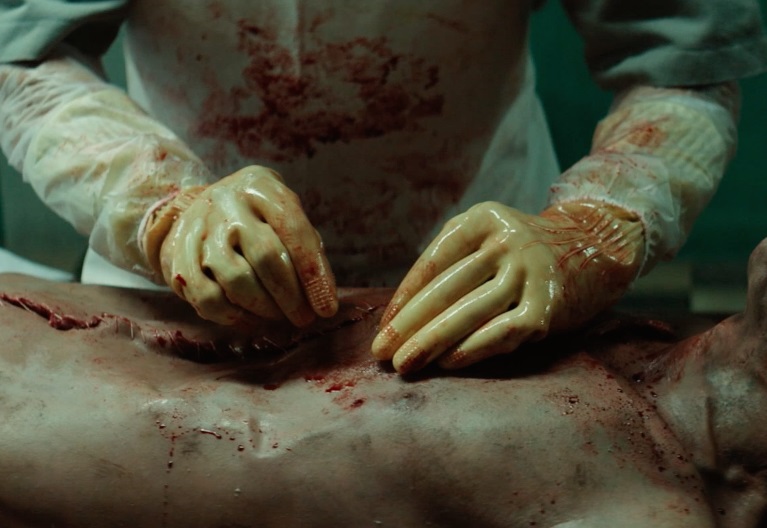Dennison Ramalho is a director with a lot of promise. His earlier shorts show that he is not afraid to make bold statements with his films, especially in regard to religion; nor is he unwilling to delve into the dark, dirty underbelly of Brazil’s gang culture. As such, his debut feature film, The Nightshifter, feels like an embodiment of this promise, but sadly it requires some refinement.
Set in São Paulo, The Nightshifter follows Stênio, a morgue worker able to speak with the cadavers that he is brought each night. It’s a novel premise and one which allows us to see that Stênio possesses a great deal of empathy, learning about who these people were and informing their families accordingly. Unfortunately, once the narrative begins proper, all novelty is quickly lost and the film descends into the usual horror fare.
There is potential for an interesting and moving examination of grief and how we handle the death of a loved one in this build-up, but it never comes to fruition and what is left is a by-the-numbers ghost story that doesn’t do anything different. Instead, jump-scares abound and exposition is delivered in tedious (and often bizarre ways) to the extent that little is left to the audience’s imagination.
This is a shame, as Ramalho successfully creates an environment that feels real despite the supernatural occurrences. This is perhaps a result of the cast who all deliver strong performances, especially Daniel de Oliveira as Stênio and Bianca Comparato as Lara, who capture a great deal of emotion in their performances. These performances are also aided by the score, which is so dissociating that it borders on haptic, and is perhaps the one thing that makes the hauntings unsettling.
This is the greatest tragedy in The Nightshifter: all the pieces for a great film are there, but the film is just unwilling to commit to them. This is best highlighted by the strange juxtaposition that permeates throughout. The standard jump-scares and hauntings which constitute the bulk of the film are highly predictable and, as a result, boring. Meanwhile, the manner in which the cadavers are shown conversing with Stênio is far more chilling, and feels more at home in both the world Ramalho creates and story he wants to tell.
As a result, The Nightshifter as a film seems unwilling to do anything bold or new in order to make itself stand out. The lack of certainty about its identity hinders it to the extent that by the end, even its one niche is lost. This results in significant disappointment, especially considering the strength of all the other elements.
